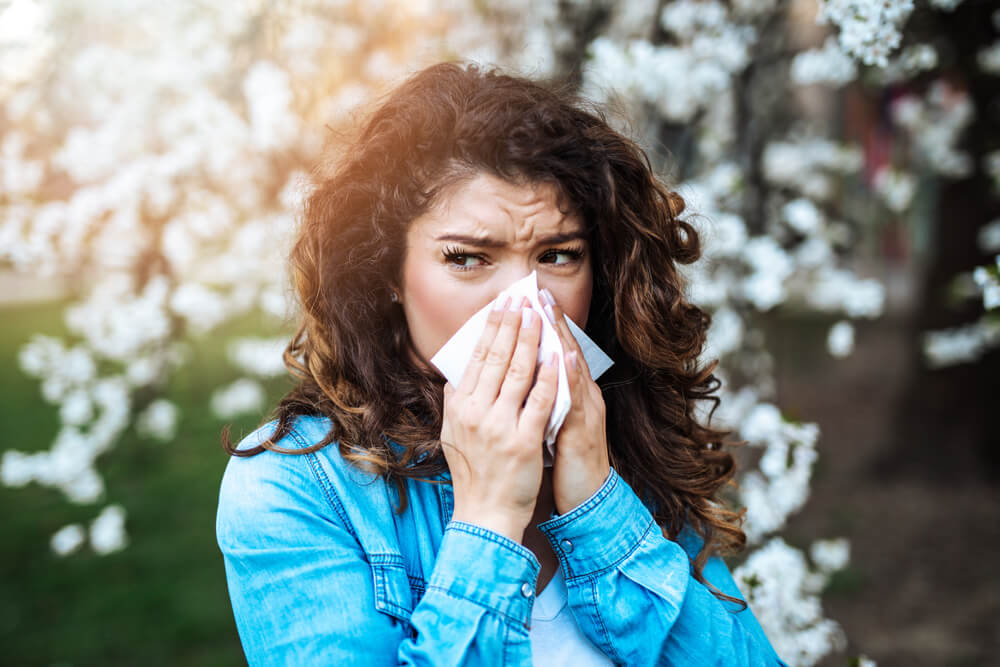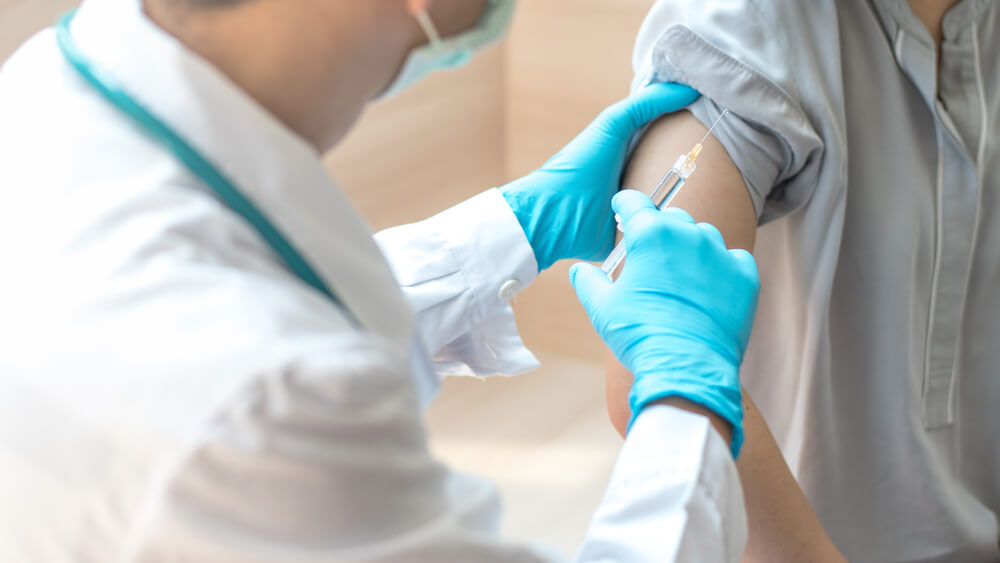In order to find a suitable treatment plan for pollen allergies, we are bringing you today some important information on what pollen actually is, what are the signs of pollen allergies, and how to find the best healing option for your particular situation. Finding an experienced allergist in Miami can be quite challenging because this topic is still being researched and tested, but at the Allergy and Immunology Center, we guarantee premium expert advice and guidance.
When it comes to pollen, it is important that patients first understand what it is so they can start working on elevating the symptoms of allergies to pollen and experience a more relaxed, enjoyable allergy season.
Pollen is a powder-looking substance produced by different plants (flowers, trees, weeds, grass) which serves as a fertilizer for other plants belonging to the same plant species. It can be spread by the wind or different insects. When patients inhale the powder, they tend to experience a reaction from their immune system, which is trying to protect them from a harmful substance.
Most commonly, our bodies defend us from different viruses and bacteria by activating the immune system, but in the case of pollen allergies, our body makes a mistake and defends us from a harmless substance seen as a dangerous threat to our wellbeing. During this time, our immune system starts to generate histamine and other chemicals which defend us from inhaled pollen.
The issue with pollen inhalation and patients’ allergic reaction is that it is quite hard to prevent it because it is airborne and enters a person’s system easily. That said, it is important to mention that there are certain steps you can take to make the impact less aggressive, and in today’s article, we will discuss this in more detail.
Signs of Pollen Allergies

Different people react to pollen in different ways. Sometimes people’s allergic reaction persists all year long. In contrast, some individuals suffer from pollen allergies only during specific periods of the year. If you are wondering how long seasonal allergies last, there is no correct answer. This largely depends on the type of pollen, i.e., what plant produces it and when it is in bloom. Unfortunately, once you start suffering from symptoms of allergies to pollen, it is very unlikely that they will stop occurring.
Although many different plants produce pollen, here are a few which can be considered the main culprits:
- Grass (during summer and spring, experts say that grass is the main allergy trigger)
- Oaktree (oak pollen is seen to be mild in the context of allergens, but it stays in the air much longer than others, so it can cause severe allergic reactions)
- Birch tree (this is the most common allergen because a single tree itself is able to produce around five million grains of pollen)
- Ragweed (one plant can produce approximately one billion pollen grains, so during fall time, this is the plant causing the most allergic reactions)
When it comes to exact symptoms of allergies to pollen, here are some of the most common ones, which can help you detect whether you have a pollen allergy:
- Pressure in the sinuses
- Facial pain
- Congested nose
- Sore throat
- Watery, itchy eyes
- Itchy ears
- Cough
- Sneezing
- Runny nose
- Low sense of smell or taste
- Blue skin underneath the eyes
- Red eyes
- Swelling in the face
Causes and Diagnosis of Pollen Allergies
As mentioned previously, the leading cause of pollen allergies is the system’s wrongful reaction to a specific allergen. The main causes of allergies, in general, are not known, but experts connect this with certain genetic predispositions.
In order to be diagnosed with pollen allergies, patients usually first visit their chosen healthcare provider for a consultation. Sometimes, their doctor can refer the patient to an allergist for additional allergy testing and diagnosis confirmation.
Allergy testing can contain a few steps, and they usually include:
- A conversation with the doctor about your medical history, symptoms you are facing, their nature, and how they affect your life quality
- A skin prick test is performed to determine the exact allergen causing the present symptoms. This test is done by pricking different areas of the skin and applying tiny amounts of allergens to the skin.
- Waiting time for the skin prick test to work (between 15 and 20 minutes)
- Having bloodwork done for additional allergy testing information
As mentioned, there is no correct answer to the question of how long do seasonal allergies last because some can be truly seasonal and last for a month or two, while some last throughout the year; your treatment path should be adjusted to these conditions.
Preventive Measures
Although pollen allergies are airborne, there are still some preventive measures you can take to stop a severe allergic reaction. These measures include staying indoors on days that are windy or dry, avoiding gardening and similar tasks, wearing a mask when you know that pollen levels are rocketing, and closing windows and doors in seasons when you start experiencing signs of pollen allergies.
If none of these work, you will have to visit your chosen doctor and discuss a pollen allergy treatment plan with them.
Pollen Allergy Treatment

There are many different approaches that you can take when it comes to treating your pollen allergies. Here are a few:
- Medication: there are different OTC medications for allergies available in pharmacies, such as antihistamines, decongestants, and combination medications. All of these can be purchased without a prescription, but it is highly advised that you speak to a medical professional prior to taking any type of drug.
- Allergy shots: this is a very common recommendation doctors give to patients who do not respond well or at all to allergy medication. Allergy shots are seen as a type of immunotherapy where a series of allergen injections are given so that the immune system learns how to respond to the allergens. Experts say that patients can feel total relief after one year or so.
- Home solutions: very often, people use some at-home options to ease the symptoms of allergies to pollen, such as herbs and extracts, supplementation, immediate washing of clothes worn outside, drying clothes in the drier instead of outside, using the air conditioner often, using a dehumidifier, regular vacuuming with a HEPA filter vacuum, flushing pollen from the nose with a squeeze bottle, etc.
Visit Us!
Pollen allergies, however light the name itself sounds, can be quite serious and uncomfortable for patients. Our clinic has created different services that will help you deal with your allergies, whether severe or mild. The experts working at our center are prepared to help you run tests and give you a proper diagnosis and guidance when it comes to overcoming the signs of pollen allergies. Call us and see why we are one of the best!


